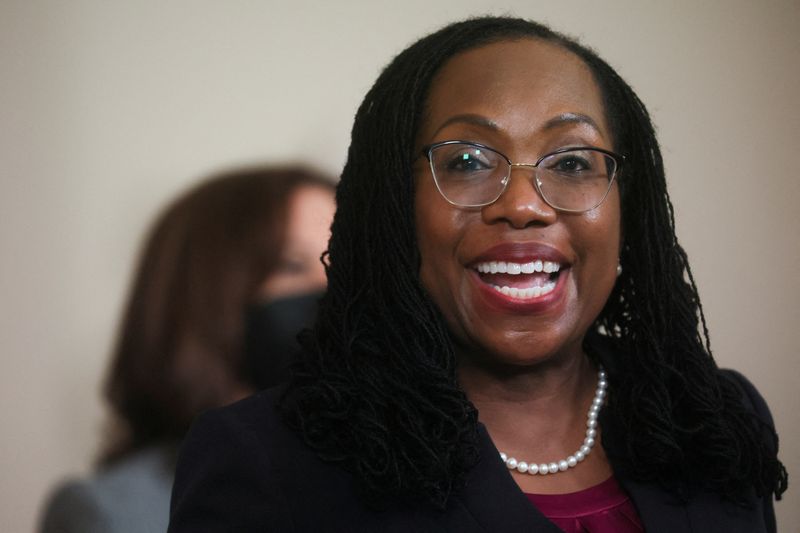By Karen Sloan
(Reuters) - The addition of Ketanji Brown Jackson will not change the grip that Harvard and Yale Law alumni hold on the U.S. Supreme Court.
President Joe Biden on Friday nominated Jackson, who graduated from Harvard Law School in 1996, to replace retiring Justice Stephen Breyer, another Harvard Law alumnus. If she is confirmed, eight of the nine sitting justices will be from Harvard or Yale Law - four from each school.
Harvard and Yale’s dominance has prompted handwringing for years.
Both Representative Jim Clyburn, a Democrat, and Senator Lindsey Graham (NYSE:GHM), a Republican who sits on the Judiciary Committee, said before Jackson’s nomination that Biden should pick someone without an Ivy League pedigree.
“Everybody doesn’t have to be from Harvard and Yale,” Graham said last month on the CBS “Face the Nation” program.
Amy Coney Barrett, a 1997 graduate of the University of Notre Dame Law School, is the sole sitting justice without a law degree from Harvard or Yale. Barrett was appointed by former President Donald Trump after the 2020 death of Justice Ruth Bader Ginsburg, who transferred from Harvard to Columbia in her final year of law school.
University of Tennessee law professor Benjamin Barton, a Supreme Court expert, said the concentration of Harvard and Yale law graduates creates a bench that's out of touch with the country.
"It's not a track where you get broad life experience," he said.
It is also a relatively recent phenomenon. Between 1902 and 1950, about 16% of confirmed justices came from Harvard or Yale Law, according to an analysis by Patrick Glen of Georgetown Law. That percentage steadily increased until the 1986 confirmation of Harvard Law graduate Antonin Scalia, after which only Ginsburg and Barrett joined the court without either Yale or Harvard diplomas.

Glen points to the failed 2005 nomination of Harriet Miers as a possible factor. She was criticized for her law degree from much lower-ranked Southern Methodist University, among other perceived shortcomings.
“A president may believe he will have an easier time selling a nominee from Harvard or Yale based on the cultural renown that both schools share,” Glen wrote.